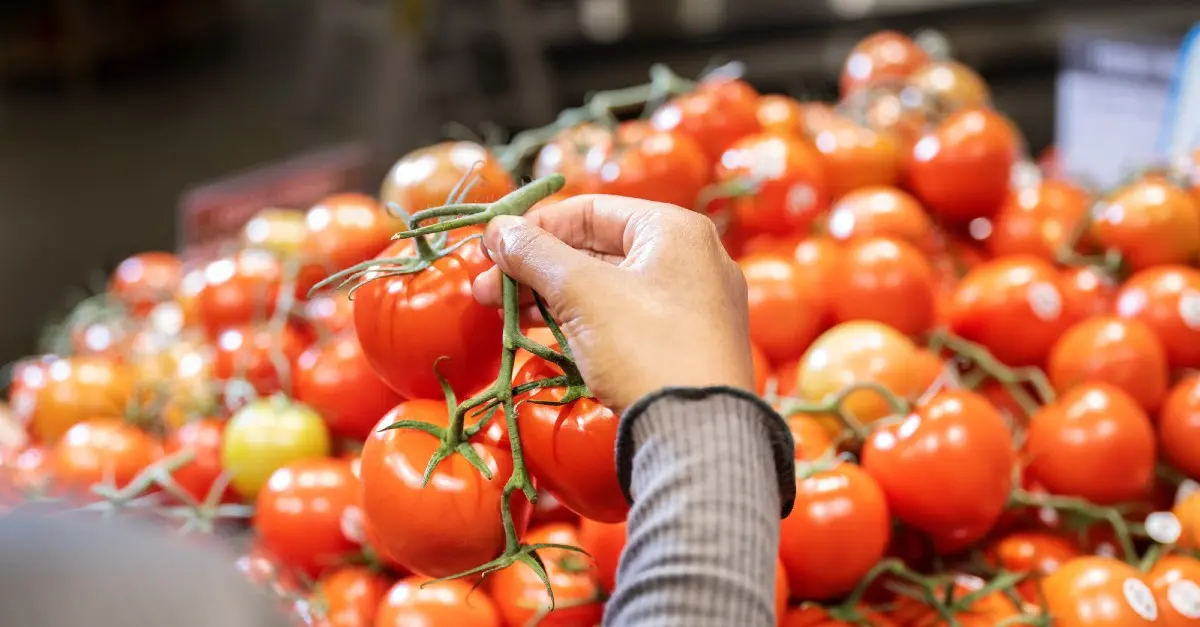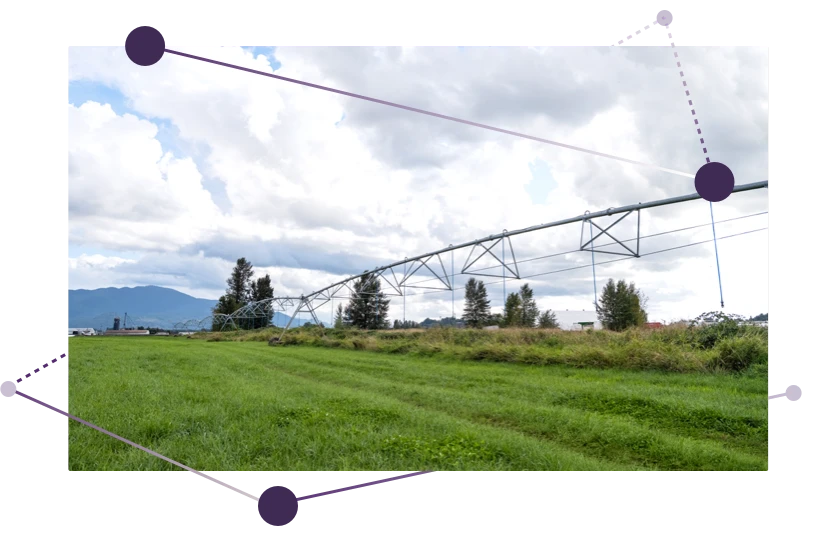FSMA Compliance: Get ready for FSMA 204 (the Food Traceability Final Rule)

Compliance for the Food Traceability Final Rule (FSMA 204) – part of the FDA Food Safety Modernization Act (FSMA) – is now proposed for July 2028. Find out who will be impacted and learn about FSMA compliance requirements.
Is your business familiar with the FDA Food Safety Modernization Act (FSMA)? The act was first signed into law back in 2011, and one of its major components – the Food Traceability Final Rule (FSMA 204) – was originally set to take effect on January 20, 2026. However, the FDA has since proposed a 30-month extension to the compliance deadline, pushing it to July 2028. The final rule is a key component of FDA’s New Era of Smarter Food Safety Blueprint and implements Section 204(d) of FSMA. The compliance requirements for FSMA regulations are complex and detailed but with the right tools in hand, compliance doesn’t have to be painful for the businesses that will be impacted. Use this article as your FSMA compliance checklist.
Table of contents:
1) FSMA at a glance
2) FSMA 204: The Food Traceability Final Rule
How The Food Traceability Final Rule may impact your business
Who must comply
What you’ll need to do to comply
About the compliance requirements
3) How you can prepare to comply with FSMA 204 now
How TELUS can help with compliance
The right tools for a challenging job
FSMA at a glance
The market for food traceability is big, globally valued at $16.58B USD in 2023 with the U.S. accounting for roughly $3.8B.1 It is growing year over year and is primarily driven by consumers’ desire for transparency.
FSMA was created to address dramatic changes in the global food system and shift how the US handles food borne illness. In the US, around one in six people suffer from a food borne illness, and 3,000 people die every year from food borne illnesses.2 Preventable food borne illness is a serious threat to public health and the economy, so the act was put together to ensure safety in the US food supply by preventing contamination instead of just reacting to it. Its goal is to achieve supply chain traceability and transparency.
Since 2011, the FDA has created various rules to implement FSMA. The rules are designed to ensure specific actions are taken by businesses and organizations within the food supply chain to prevent contamination.
FSMA 204: The Food Traceability Final Rule
The Food Traceability Final Rule (also known as FSMA 204 and the FDA final rule on Requirements for Additional Traceability Records for Certain Foods) is designed to facilitate fast identification and removal of contaminated food from the market, with the goal of reducing foodborne illness cases and death.
How the Food Traceability Final Rule may impact your business
Though there will be some exemptions, your business may need to adhere to the Food Traceability Final Rule by July 2028. You may face new and strict traceability recordkeeping requirements if you manufacture, process, pack or hold foods currently included on the Food Traceability List (FTL). Here are some key examples of foods on the list:
Eggs (shell, from domesticated chickens)
Nut butters
Cheese (made from pasteurized milk including fresh soft, soft unripened, soft ripened, semi soft)
Cucumbers (fresh)
Herbs (fresh)
Leafy greens (fresh and fresh cut)
Melons (fresh)
Fruits (fresh cut)
Vegetables (fresh cut)
Refrigerated deli salads (ready to eat)
Finfish (fresh, frozen and previously frozen)
Crustaceans (fresh, frozen and previously frozen)
Molluscan shellfish and bivalves (fresh, frozen and previously frozen)
More foods are listed and the FDA can update the list at their discretion, so be aware that other foods may be added in the future.
Who must comply
FSMA compliance for the final rule will impact both domestic and foreign firms producing food for U.S. consumption across the entire food supply chain - from field to consumer.
What you’ll need to do to comply
FSMA 204 compliance is necessary for you if you manufacture, process, pack or hold foods on the FTL, you'll need to create and maintain detailed records containing Key Data Elements (KDEs) associated with specific Critical Tracking Events (CTEs); and upon request, provide information to the FDA within 24 hours (or within a reasonable timeframe which the FDA has agreed to).
About the compliance requirements
Let’s dig deeper into the records you’ll need to keep and share with the FDA.
KDEs
KDEs cover important product characteristics like origin, date of production, quantity, weight, shipping dates and traceability lot codes (TLCs).
TLCs
A TLC is a unique descriptor (often an alphanumeric code) which identifies a traceability lot within the records of the firm that assigned the TLC.
You’ll need to assign a TLC to a food on the FTL when you:
Pack a raw agricultural commodity (RAC) other than a food obtained from a fishing vessel
Perform the first land-based receiving of a food obtained from a fishing vessel
Transform a food
If you receive an FTL food from an entity that is exempt from the final rule, you will need to create a TLC (if one has not been assigned, except if you’re a retail food business or restaurant). Otherwise, you should not create a new TLC when you conduct other activities (e.g., shipping) for a food on the Food Traceability List.
Any records created to document CTEs should reference relevant TLCs. All of the KDEs, including the TLC, must be linked to the traceability lot.
Critical tracking events (CTEs)
CTEs in the final rule include:
Harvesting
Cooling (before initial packing)
Initial packing of a raw agricultural commodity other than a food obtained from a fishing vessel
First land-based receiving of a food obtained from a fishing vessel
Shipping
Receiving
Transformation of the food
Traceability plans
You may need to create and maintain a traceability plan containing some or all of the following information:
How you maintain the records you keep to comply with the rule, including the format and location of the records.
How you identify foods on the Food Traceability List that you manufacture, process, pack or hold.
How you assign traceability lot codes to foods on the Food Traceability List.
A contact representative for your traceability plan and records.
A farm map if you grow or raise a food on the Food Traceability List (not including eggs). It will need to show:
The areas where you grow or raise the foods.
The location and name of each field or growing area for foods from the Food Traceability List, including geographic coordinates, etc.
The location and name of each container (like ponds, pools, tanks and cages) if you raise seafood on the Food Traceability List, including geographic coordinates etc. (for aquaculture).
How you can prepare to comply with FSMA 204 now
The proposed delay to July 2028 doesn’t change what’s at stake. Companies that act now to digitize traceability won’t just be ready for FSMA 204 — they’ll be ahead of the curve in managing risk, strengthening transparency and reinforcing consumer trust. If you’re concerned about compliance, now is the time to make any necessary moves to prepare your business for the rollout of the Food Traceability Final Rule. Depending on how your business currently operates, and the state of your recordkeeping, you may have to make significant changes to comply. Early compliance will help your business avoid fines and penalties. It’s also something worth sharing with your customers and partners – so they know they’re in good hands.
How TELUS can help with FSMA compliance
TELUS Agriculture & Consumer Goods can help you comply with FSMA 204 and improve key areas of your business. We deliver digital solutions and actionable data insights that connect the food supply chain, driving more efficient production processes and improving safety, quality and sustainability of outputs – all in a way that’s traceable and clear to the end consumer. Our suite of robust tools and systems can help your business comply with the Food Traceability Final Rule.
The right tools for FSMA compliance
While the requirements for the rule may be new to your business, TELUS Agriculture & Consumer Goods has been helping businesses big and small comply with similar requirements abroad for years.
Our set of tools and systems are ready to help you address your FSMA compliance needs too. If you are not sure which product is right for you, contact us and a TELUS representative will be in touch to assist you.
TELUS Supply Chain helps you improve supply chain transparency, dynamically manage risk and save time. It can help you with CTEs across the food supply chain.
TELUS Food Safety & Quality can help you manage your end-to-end safety and quality programs, mitigating risk, reducing waste and ensuring compliance. Additionally, embedded cold chain management can further enhance compliance with regulations.
To make our customers’ lives easier, we acquired Proagrica in March of 2024 as part of our mission to streamline the food value chain. Our Proagrica Network platform can help your business connect and exchange KDEs across CTEs.
Our tools and services can be used like FSMA compliance software to help your business smoothly navigate your way through each and every requirement. Lean on our team's experience, expertise and resources as you streamline and improve your business's operations and recordkeeping and get FSMA 204 ready.
We make compliance easy so you can focus on what you do best
1 Global Market Insights. Food Traceability Market - By Component (Hardware, Software, Services), By Deployment Mode (Cloud based, On-premises, Hybrid), By Technology, By Software, By Application & Forecast, 2024 - 2032, July 2024.
2 California Department of Public Health. Foodborne illnesses and outbreaks, 2024.


